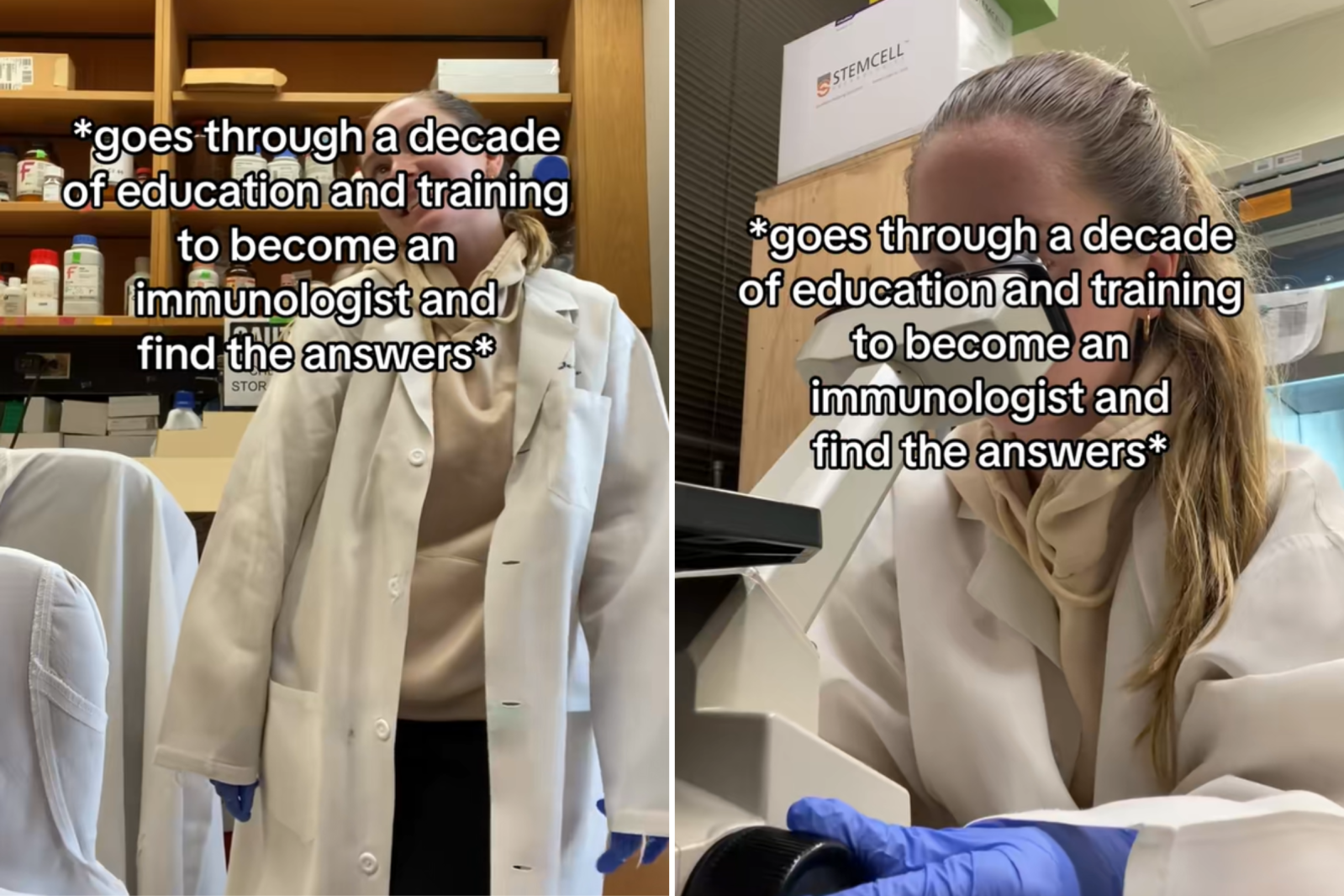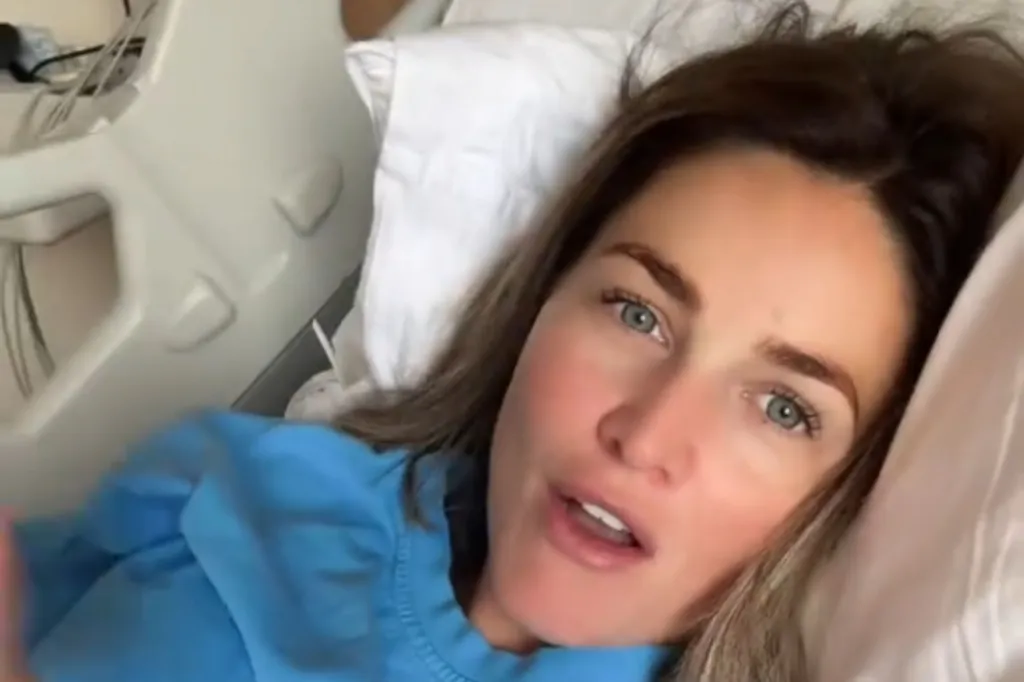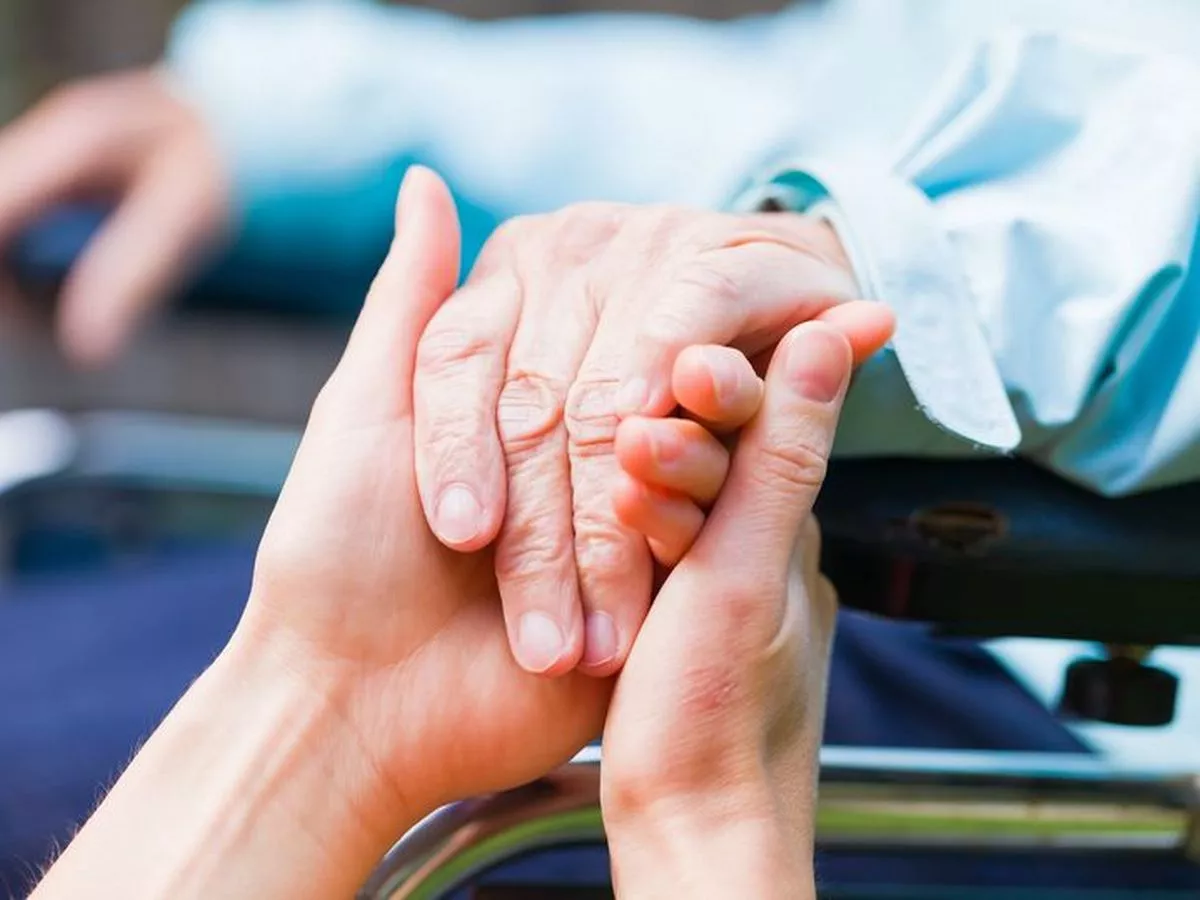By Alyce Collins
Copyright newsweek

Years of struggling with an autoimmune disease might leave some people despairing, but not Kathryn Sullivan. Frustrated by the lack of information and understanding about her illness, she has devoted her livelihood to research and helping others.
In 2014, while in high school, Sullivan began experiencing a plethora of unexplained symptoms. It followed a severe bout of Epstein-Barr virus, but even when she started to feel better, she still couldn’t shake the unusual array of symptoms.
Sullivan, now 28, had persistent low-grade fevers, joint pain, migraines, swelling in her face, hair loss, bruising, rashes, and brain fog. However, she told Newsweek that “the most debilitating” was the extreme fatigue which left her unable to enjoy life.
The symptoms didn’t ease as time went on, and Sullivan sought advice from several medical providers and specialists. She was also hospitalized on multiple occasions because her condition became so concerning.
Dr. Kathryn Sullivan doing research in the lab. @kathrynsullivan_phd / TikTok
“I first received an abnormal lab result in 2017 suggesting that I had an autoimmune disease,” Sullivan said. “I remember asking my physician why I’d developed autoimmunity, and how I could get rid of it. His response was that they don’t really know what causes autoimmune diseases, and there’s no cure.
“The thought of living the rest of my life feeling so sick was devastating. I had hope that medications would help me, but when they brought very limited relief, I was told by my physician there weren’t any other options.”
Sullivan’s symptoms were dismissed as anxiety or stress for years, but she doesn’t believe that her medical providers had any ill intentions. Rather, she suggests it’s because of “a systemic issue” whereby women’s health concerns are “not taken seriously.”
Following her diagnosis, Sullivan was given medication to take daily, including Prednisone, but she only saw minor improvements.
Researching Immunology
Having first-hand knowledge of just how devastating an autoimmune disease can be only served to embolden Sullivan to make a change. She knew there would be many others out there just like her who were left questioning whether their symptoms were real or not.
“My personal experience opened my eyes to how limited our understanding of autoimmune diseases is, and how more research is urgently needed,” Sullivan said.
Sullivan went on to study microbiology at the University of Wisconsin Madison where her love of research took shape. She worked as a research assistant and interned at various institutes where she focused on understanding chronic illness.
Following that, Sullivan was a graduate researcher at the University of Alabama-Birmingham School of Medicine, completing her PhD in immunology.
Throughout her studies, Sullivan continued to experience regular flare-ups. While she tried to be hopeful and optimistic about advancing the research, it was hard not to let the doubts creep in. During those moments, she thought about the feeling she had when she was diagnosed, and all the other people who feel equally as uncertain.
That was her driving force that enabled her to persevere.
“My education and training have given me the tools to understand my conditions and live a healthier life,” Sullivan told Newsweek. “Becoming a scientist fundamentally changed how I understand my health, and I am deeply grateful for the knowledge I gained. I often reflect that if I had access to research and the tools to interpret these studies earlier, I could have advocated for myself more effectively.”
Sullivan now takes a thyroid replacement medication, but she says the greatest improvement in her health has come from making dietary and lifestyle changes. She used to experience one or two flare ups a month that would often leave her bedridden, but thankfully she hasn’t had a major one since 2022.
Sharing Her Experience
Living with an autoimmune disease can be “incredibly isolating,” but Sullivan wanted to raise more awareness and connect with others. She started documenting her experience on TikTok (@kathrynsullivan_phd) about her decade of education and research to become an immunologist.
She’s heartened by the growing awareness surrounding invisible illnesses, but there’s still a long way to go. She hopes that with more education, and research like hers, people living with autoimmune diseases will be able to enjoy a much better quality of life and will finally get the answers they’ve been waiting for.
Of course, living with an illness or condition is hard, but Sullivan wants to show people that it doesn’t need to define or restrict their lives forever. She wants people to see hers as a story of possibility and hope, inspiring them to never lose faith in what’s possible.
“My goal for future research is that the medical community will gain a better understanding of the mechanisms behind autoimmunity, especially why autoimmune diseas…



